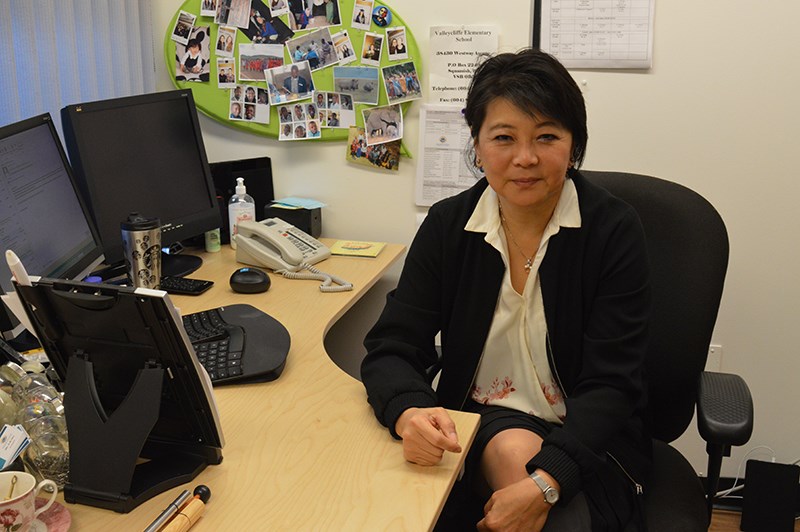A local school principal is looking into how teachers from widely differing cultures can collaborate to share the skills they need for their profession.
Valleycliffe’s Ji Ai Cho has been working on a doctoral thesis around the idea, but it actually started through her volunteer work with Education Beyond Borders, a Canadian organization in which educators work overseas to help provide professional development for teachers in other countries.
She started with the organization in 2010, then took a couple of summers to begin her post-graduate work and returned to Africa this summer, to continue both her volunteering and to work with Canadian and Kenyan teachers as part of her thesis.
“I like to understand what drives people to collaborate,” she told school trustees at a recent board meeting.
One of the most noticeable differences is that teachers in African countries are still following many older methods of teaching such as lecturing on a set curriculum. Newer approaches like student-centred or inquiry-based learning have yet to take hold, although, as Cho found, teachers in Kenya are sometimes teaching to classes of 100 students, so their resources are limited.
“It’s good to talk about theory all you want,” she said. “But if you can’t apply it, what’s the point?”
Nor do they have opportunities for professional development, which makes programs like Education Beyond Borders all the more important.
“Most of them don’t get professional development,” she said. “Some of them don’t even get teacher training.”
A key lesson for teachers from Canada is the importance of being able to work with what resources they have on hand.
For the professional development, early on it has meant the Canadian teachers taking the lead in running workshops but over time this has transitioned to having the local teachers take charge of discussions.
This interaction between the teachers of the group has also provided material for her thesis.
“It’s an inquiry into collaboration between Kenyan and Canadian teachers,” she said.
Cho is also looking at the relationship through the lenses of post-colonial theory and transformative theory.
The former takes into account the issues faced by teachers in an environment like Kenya in a period when the country is setting its own course following decades of British rule.
“We’re learning about life after colonial rule,” she said, adding that the experience should provide some parallels for teachers in Canada in light of experiences of First Nations peoples.
“I think there are a lot of parallels to how we approach the educational issues in developing countries,” she said. “We don’t want to come off as know-it-alls.”
The latter lens looks at those moments of epiphany for educators where they identify a change in how they think or approach their work. Sometimes these can be sudden and major events, and sometimes they are small, cumulative patterns of events.
For her research, she is interviewing five teachers from Kenya and five from Canada who are taking part in the project to see how their worldview has been changed by the collaboration.
Just because she is back in Canada now, it doesn’t mean the end of the collaboration, as Cho keeps in touch with a few of the teachers back in Africa and looks for ways in which the students there can interact with students in Squamish.
“I’m finding more and more that we’re using social media,” she added.
Education Beyond Borders is based in North Vancouver and describes itself as a “non-profit NGO devoted to closing the global education divide through teacher professional development and community education.”



